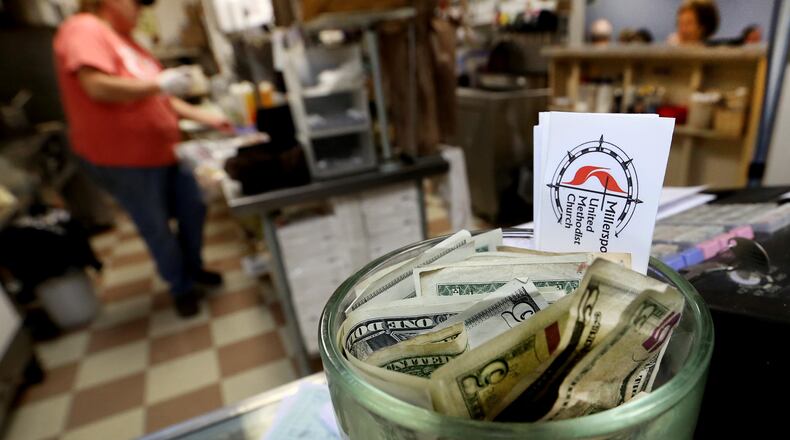That’s a change from a rule set up in 2011 that said restaurant owners can require tipped employees to participate in tip pools only if the pool money is shared among other traditionally tipped workers—such as servers, bussers and bartenders. Those employees are considered customer-facing, “front of house” staff.
MORE: DP&L has given hints of financial stresses
Sen. Sherrod Brown said he and 23 other senators have sent a letter to the Labor Department protesting the proposed change, saying it would that would “take money out of the pockets of low-wage workers.”
The senators also accuse the Labor Department of sitting on an analysis they say shows that the proposed rule “would result in employers stealing potentially billions of dollars from their workers.”
MORE: Judge gives workers suing Fuyao class-action status
“DOL is forcing through a regulation that would take money out of the pockets of low-wage workers and, even worse, it covered up the potentially catastrophic impacts from workers and advocates,” said the letter signed by Brown and the other senators, all Democrats.
The senators announced the letter Thursday.
This week, the Labor Department inspector general said the rulemaking process for the change would be investigated.
Today, Ohio employers can pay workers just $4.15 an hour if they earn tips, but employees are permitted to keep all of the tips they earn. Most business owners in Ohio must now pay non-tipped workers at least $8.30 an hour, which is the state’s minimum wage.
MORE: Ohio attorneys file class-action suit against Menards
But under the proposed new federal rule, owners could cut workers’ base pay to as low as the $7.25 — that’s the federal minimum wage — take all tips and distribute them to non-tipped workers up to $8.30 an hour.
The employers can keep anything above that, according to Policy Matters Ohio, a left-leaning think tank.
“The proposal contains no requirement that business owners who confiscate tips distribute them among workers at all,” Policy Matters Ohio said in a recent statement. “As long as they pay the state minimum wage, they are free to pocket them under the proposal.”
According to the Economic Policy Institute, employers could control up to $5.8 billion in tips under the rule change.
Supporters say the rule is a way to share tips with anyone actively involved in customer service. Waiters and waitresses could share tips with, for example, cooks and dishwashers who don’t normally work in customer-facing positions, addressing a disparity in income between front-of-house and back-of-house workers.
The National Restaurant Association has sued to challenge the 2011 rule.
"The Department of Labor has completely overstepped its regulatory authority and is unfairly discriminating against those restaurant employees who work in the back of the house," Angelo Amador, the NRA's senior vice president, told Nation's Restaurant News. "The law here is clear: Employees who earn above minimum wage should be able to share their tips with fellow employees, no matter where they work. The Department of Labor cannot continue to trample on the rights of restaurant workers."
About the Author

